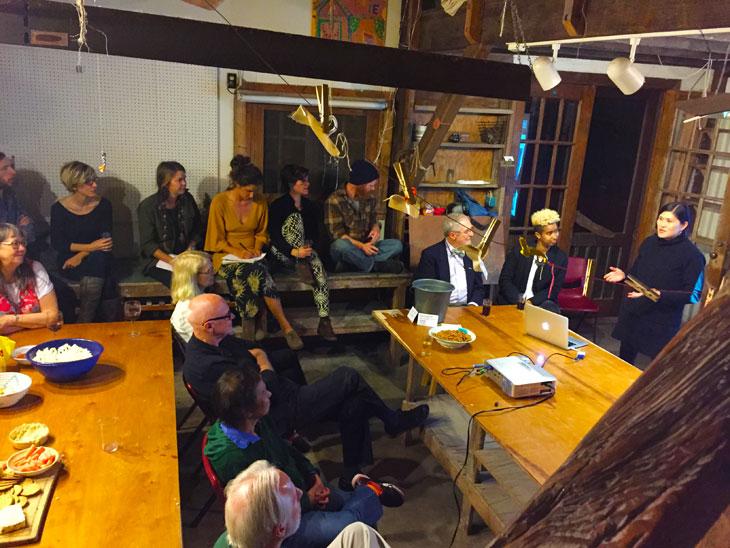Are American children canaries in a coal mine?
In contemporary America, children are the first indicators of a widespread environmental hazard: lead poisoning.
“It’s outrageous. We as a society are using children as biosensors for when intervention needs to happen,” says Jan Mun, an artist-in-residence at A Studio in the Woods’ Flint & Steel residency program that pairs artists with Tulane University faculty to create new work and ignite social change.
Mun, a Brooklyn-based media artist, is collaborating with Tulane pharmacologist Howard Mielke to generate awareness about the invisible threat of lead. Mielke is creator of the Lead Lab project, a nonprofit initiative that helps communities with lead contamination in children's play areas.
“It’s outrageous. We as a society are using children as biosensors for when intervention needs to happen.”
Jan Mun, artist and activist
“We practice what is called secondary prevention, where we go in after the children are already contaminated with lead,” continues Mun. “There is no cure.”
The toxic effects of repeated lead exposure are long-term and insidious, and include mental impairment, aggression and depression. The canaries — children from birth to six — are the most vulnerable to the effects of lead.
Lead has long been known as an environmental health hazard, but it was not until 1978 that it was banned from household paint and 1996 from automobile gasoline. (The aviation industry continues to use leaded gas, polluting airport neighborhoods with lead particles.)
As of 2016, there is still no clean soil act in the U.S. that would provide the legal inroads and research resources to address this endemic problem.
“We recognize air and water as resources that can become contaminated, and we do something about that, through the Clean Air Act and Clean Water Act,” says Mielke. “But when it comes to soil, we do not.”
Mielke, who helped develop a Clean Soil Act for Norway, says that there are steps we can take to mitigate this risk. He and Mun are working with New Orleans-based Blights Out founder Imani Jacqueline Brown to publish a citizen’s guide to soil remediation that will be one of the outcomes of their collaboration.

